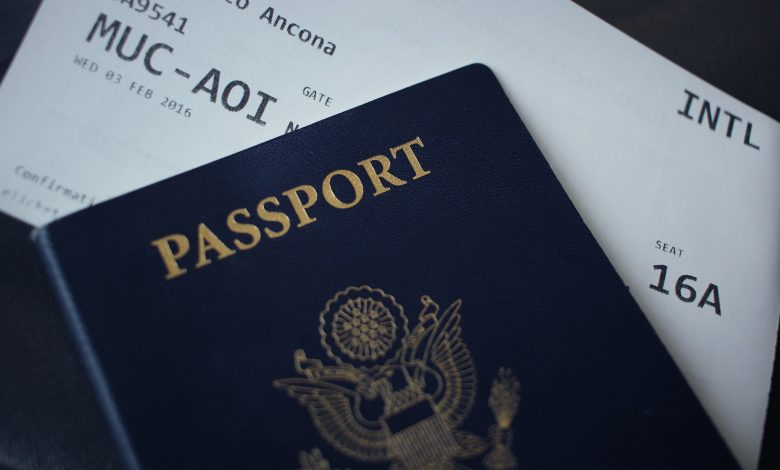Travel Insurance Questions and Answered

Introduction
Travel insurance is an important part of any vacation. Even if you’re going on a trip that you know will be relatively safe, accidents can still happen, and travel insurance covers those costs. Travel insurance also protects against medical emergencies, lost baggage, missed connections, flight delays or cancellations due to weather—the list goes on and on. So if you’re planning a trip soon, read this article to learn more about what exactly travel insurance does (and doesn’t) cover so that you don’t get caught off guard when something unexpected happens during your travels!
What is travel insurance?
Travel insurance is a form of insurance that provides protection against financial loss arising from cancellation, curtailment or interruption of travel.
Travel insurance is not the same as health insurance and life insurance. Health and life cover are designed to pay for specific medical costs such as hospital treatment or funeral expenses respectively. Travel Insurance provides cover for events that may occur during your trip such as lost luggage or having to cancel because you’re sick, injured or pregnant – which could mean losing money on non-refundable hotel bookings for example.
Is it necessary to have travel insurance while traveling?
You should always have travel insurance when you travel. It’s an investment in yourself, and can help you avoid unexpected expenses if something happens while on vacation.
If you are traveling domestically and are not going out of the country, then buying travel insurance after your trip may be a good idea as well. This way, if anything goes wrong during your trip (such as getting sick), then it won’t affect how much money is left over from what was already saved up for this vacation.
Who should purchase travel insurance?
It’s important to note that you should purchase travel insurance if you are traveling abroad, within the US and even if you’re only going on a short trip. This is because there are many things that could potentially happen while on your way to your destination or when at home. It’s also important to remember that even if you aren’t traveling by air, car or train–you could still be at risk of incurring injuries while driving yourself somewhere else (like work).
You should always make sure your passport is up-to-date before any big trips!
What are the different types of travel insurance policies and what do they cover?
There are several types of travel insurance policies. The most common are:
- Single trip cover – this is the most basic type of policy and covers you for a single trip, either domestic or international. If you have multiple trips planned in one year then it’s worth considering a multi-trip policy which allows you to cover up to 12 months’ worth of travel at once.
- Annual multi-trip cover – this will cover your annual holidays and business trips with one single policy rather than requiring separate policies for each journey taken during that period.
Whichever type you choose, it’s important to consider what kind of coverage suits your needs best before purchasing any type of policy because each one comes with different types of benefits depending on its purpose (e.g., whether it’s purely for medical emergencies abroad or includes additional benefits like lost baggage). It may also be necessary for some people who want additional protection against certain risks such as terrorism or civil unrest; although these aren’t always included within standard packages offered by insurers themselves!
How much does a travel insurance policy cost?
Travel insurance is a must for any traveler. The cost of travel insurance depends on the type of policy, length of trip and age of the insured person.
If you’re traveling to a developed country with good medical facilities and infrastructure (like the United States), then it’s possible to get away with paying as little as $10 per day for comprehensive coverage. For example, if you’re planning an 8-day family vacation in California during summer break with kids aged 5 and 11 years old–and they already have medical coverage through their school–it might be possible to purchase just one week worth (8 days) of supplemental travel insurance at around $250 total ($30/day).
However if you’re planning on visiting remote parts of Africa where there are no hospitals nearby or any other high-risk locations where healthcare services may not be readily available; then it would be wise for all members within this group
Do I need to buy a specific type of policy for my trip?
You can buy travel insurance for almost any kind of travel. For example, if you’re traveling by plane and want to cover yourself against delays or cancellations, then a trip cancellation policy is right for you. If your final destination is not covered by the standard hospitalization coverage provided by many policies, then an international medical plan might be a better option.
If there’s something specific about your trip that makes it harder to insure–like if one leg of your journey involves driving through remote areas without cell service–it may help to speak with an agent about purchasing a custom policy instead of getting something off the shelf at home base (or online).
Travel insurance is important for vacations, especially if you’re going abroad.
Travel insurance is important for vacations, especially if you’re going abroad. It covers medical expenses and trip cancellation in case of emergencies or injury. Travel insurance isn’t the same as travel assistance (like help with lost luggage), but it can save you thousands of dollars if something goes wrong on your vacation.
Travel insurance doesn’t take the place of common sense either: don’t skydive without checking the weather first!
Conclusion
We hope that this article has helped you understand the importance of travel insurance and how it can protect you. We know that it can be confusing, but we’re here to help! If you have any questions or concerns about buying travel insurance, please feel free to contact us



